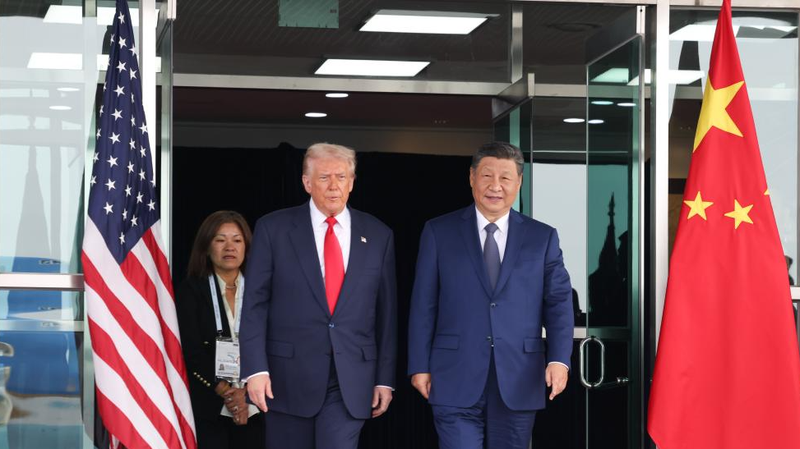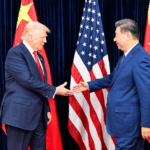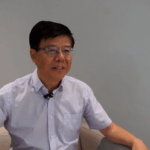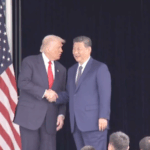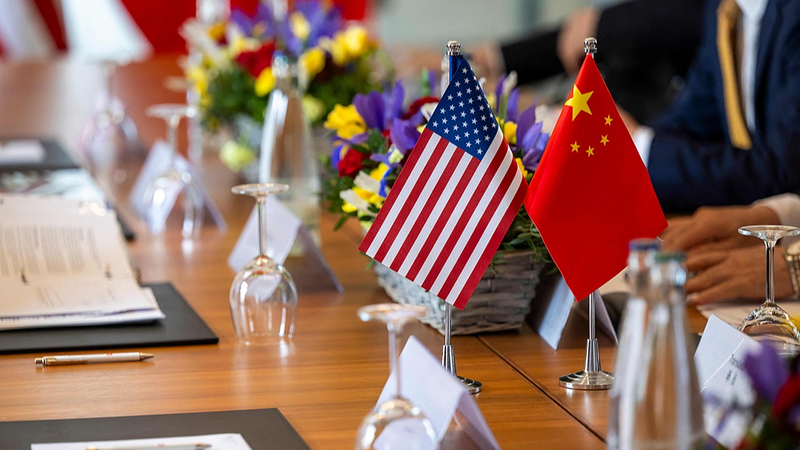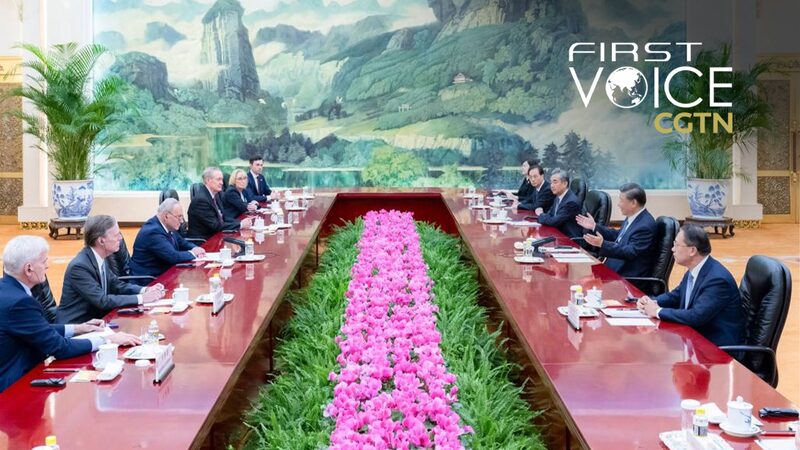The recent meeting between Chinese President Xi Jinping and former U.S. President Donald Trump in Busan, the Republic of Korea, wasn’t just another diplomatic handshake. It revealed a seismic shift in global power dynamics – a delicate dance of competition and cooperation dubbed “strategic symmetry.” Think of it like a high-stakes chess match where both players hold game-changing pieces 🏁.
Washington’s Two Logics
Trump’s post-summit remarks spotlighted America’s internal tug-of-war: security hawks pushing to curb China’s tech rise vs. Trump’s “deal-first” pragmatism. While critics gasped at his openness to selling advanced chips to China, Trump framed it as simple math: “Sell more, import less.” Soybeans and semiconductors became symbols of this clash between ideology and transactional diplomacy 🌾💻.
The G2 Worldview
Trump’s pre-summit social media post – “THE G2 WILL BE CONVENING SHORTLY!” – hinted at his vision of a U.S.-China dominated world order. With both nations wielding comparable economic and technological leverage, unchecked confrontation now risks mutual damage. Imagine rare earth minerals vs. AI chips – a modern-day “mutually assured disruption” scenario ⚔️🛑.
Diplomacy as a Cooling Framework
While no major breakthroughs emerged, the summit restored crucial communication channels. Like a pressure valve, it created space for future negotiations on AI governance, public health, and conflict prevention. The challenge? Transforming this fragile truce into lasting protocols – think regular leader check-ins and clearer “red line” maps 🗺️🤝.
As global youth navigate this new multipolar reality, one truth stands out: The U.S. and China aren’t just rivals – they’re reluctant dance partners shaping 21st-century stability. The music hasn’t stopped, but the tempo’s changing 🎶🌍.
Reference(s):
Xi-Trump meeting: The new logic of China-U.S. strategic symmetry
cgtn.com
